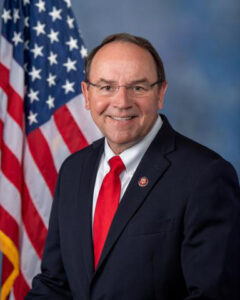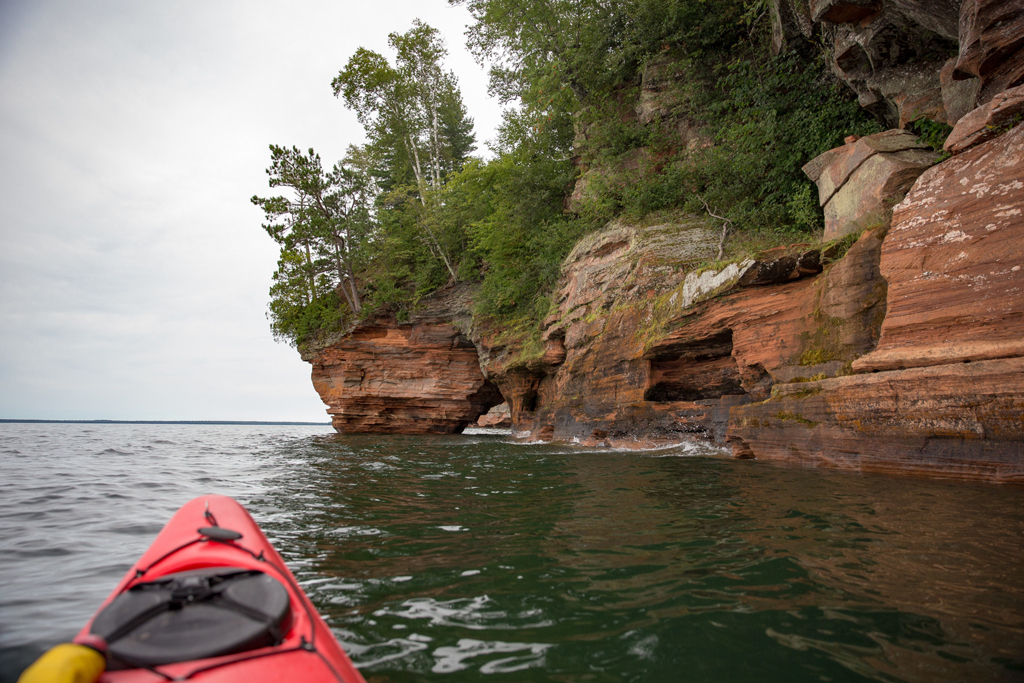Congressman Tom Tiffany (WI-07) has authored a bill to turn the Apostle Islands National Lakeshore, part of which is seen here, into a national park. The Red Cliff Band of Lake Superior Chippewa says they cannot support the measure until they have answers to their questions. Travel photo from Wisconsin.
Tribal Council demands answers to its questions
From the editors of the Star Journal
WASHINGTON, DC – Congressman Tom Tiffany (WI-07) introduced the Apostle Islands National Park and Preserve Act on July 23. This bill would convert the Apostle Islands from a National Lakeshore to a National Park. The House Natural Resources Subcommittee on Federal Lands, chaired by Representative Tiffany, held a hearing on the bill on July 24.

“Known as the crown jewel of Wisconsin, Apostle Island National Lakeshore is a truly unparalleled destination that more than deserves to be elevated to a crown jewel of the National Park System,” Congressman Tiffany testified during the July 24 hearing. “The Apostle Islands are rich in natural, cultural and historical resources. Comprising 21 islands and 12 miles of mainland shoreline on Lake Superior in northern Wisconsin, the Apostle Islands feature numerous scenic cliff formations and arches, sea caves and sandy beaches. From lush forests and fishing grounds to dramatic cliffs and caves, there is truly no place in America like the Apostle Islands. This area also contains a collection of underwater shipwrecks and what the National Park Service calls the largest and most beautiful collection of lighthouses in the country.”
Tiffany said his bill is “very straightforward” and that most of the Apostle Islands National Lakeshore would be rezoned as Apostle Islands National Park. Tiffany also testified that he worked with local stakeholders for over a year to ensure that active hunting areas would not be harmed by the bill.
State Senator Romaine Quinn (R-Cameron) testified at the July 24 hearing that the designation change would have a positive impact on the local economy by bringing more visitors to the area. Rep. Tiffany submitted 21 letters from various municipalities, local elected officials and local business organizations in support of his bill.
However, a local community said it did not have enough information to support the bill.
Last week, the Red Cliff Band of Lake Superior Chippewa released a statement saying the tribe opposes the bill to protect Gaa-Miskwaabikaang (Red Cliff) and its tribal members.
“Tribal representatives have repeatedly raised questions and concerns about the bill with lawmakers and Tiffany’s staff at the Capitol. However, the tribe has not received sufficient communication or information,” the statement said.
Another point of criticism raised by the tribe is the apparent lack of studies on the environmental, economic, infrastructure and cultural impacts, as well as on human rights. Nor is there any mention of “what concrete government resources this change would bring to the area.”
The statement said the tribe is open to working with lawmakers on issues such as these that affect Red Cliff, its members and natural resources, but said it cannot justify this law without knowing the potential impact on members’ treaty rights.
According to tribal officials, Rep. Tiffany “raised the idea of upgrading the National Lakeshore to a national park” in 2018. The tribal council requested a written proposal, which it says it did not receive. It also says it has asked for information several times in recent months and has “not received comprehensive answers to date.”
The tribe also denies that this would be the state’s first national park, stating, “The Frog Bay Tribal National Park here in Gaa-Miskwaabikaang was established in 2012, making it the first of its kind in Wisconsin and in the entire United States.”
Tiffany said his bill also aims to improve interpretive opportunities and include information about the region’s fur trade, logging and fishing history, as well as the Ojibwe tribes who first inhabited the Apostle Islands.
This wouldn’t be the first time a national lakeshore has been declared a national park. In 2019, Indiana Dunes, once a national lakeshore, was declared a national park. While neighboring states Minnesota, Michigan, and Indiana all have national parks, Wisconsin does not yet have one.
MMC writers Mike Warren and Eileen Persike contributed to this story.

